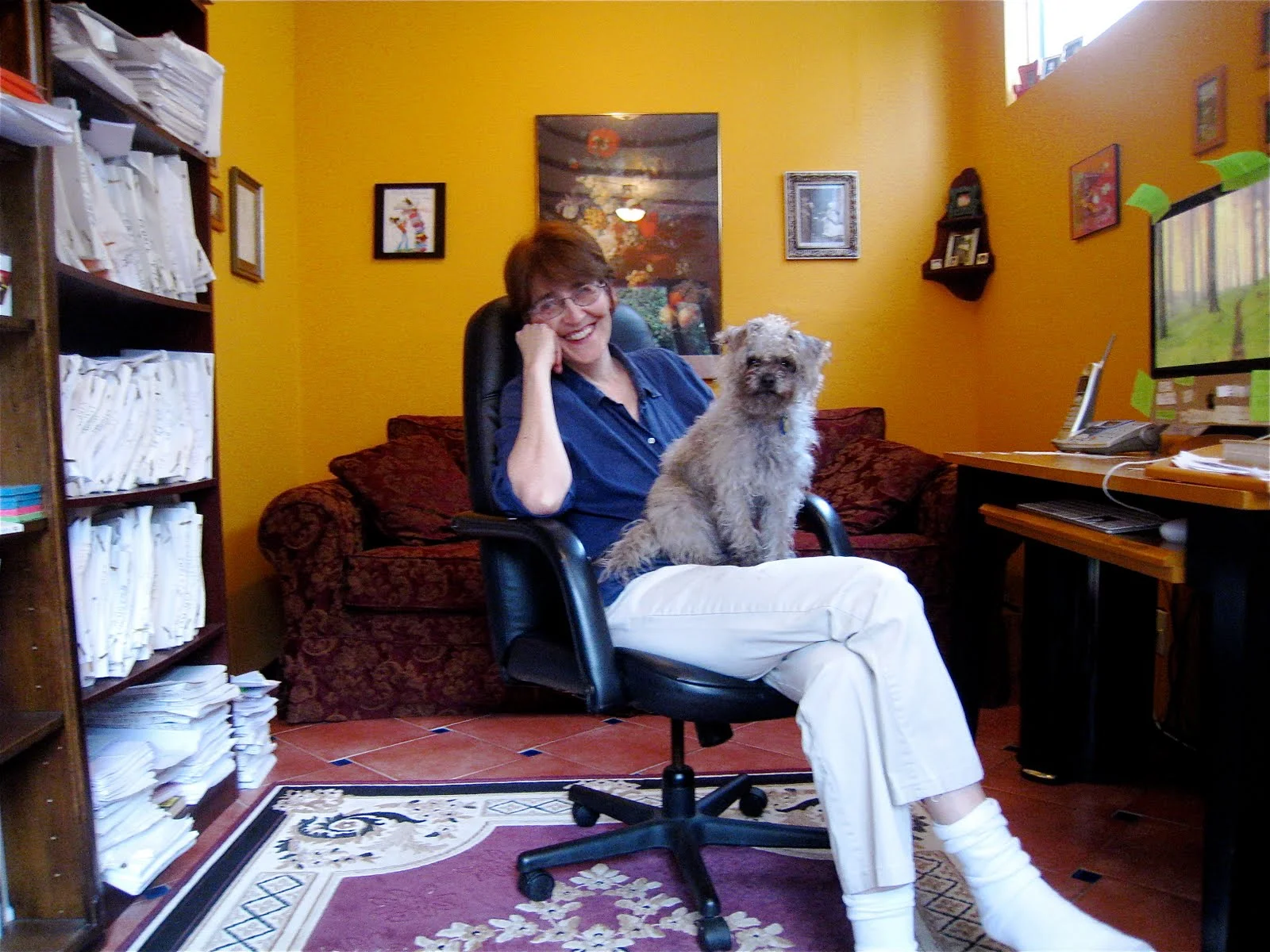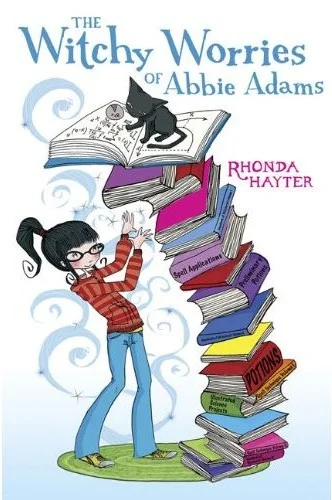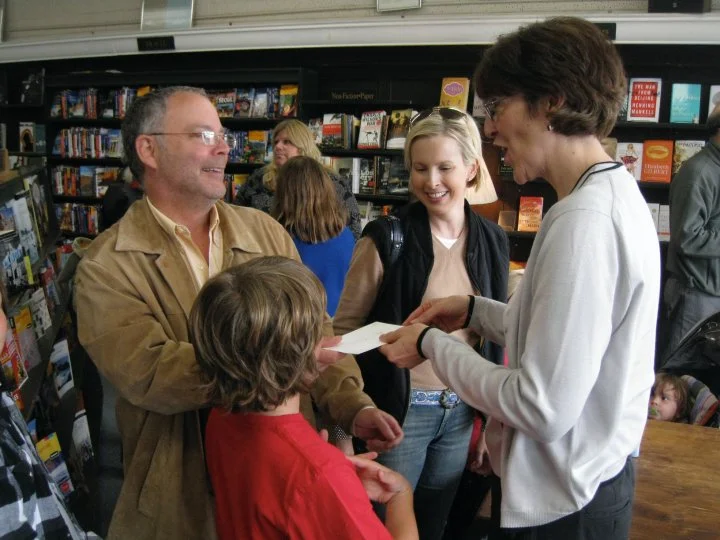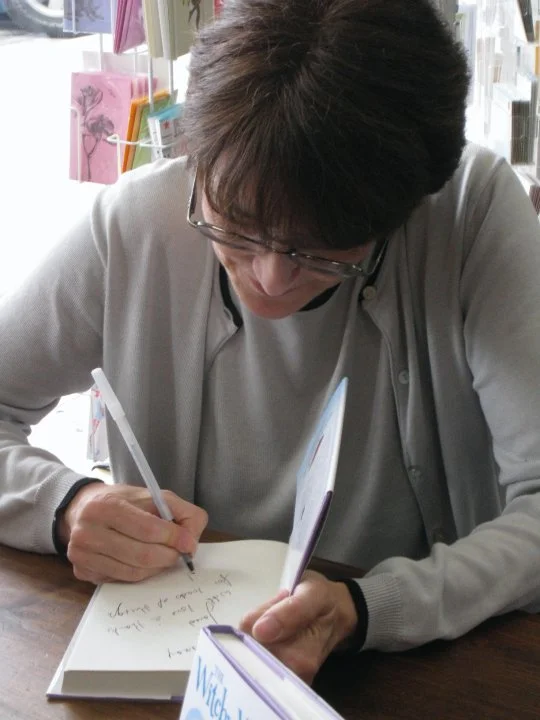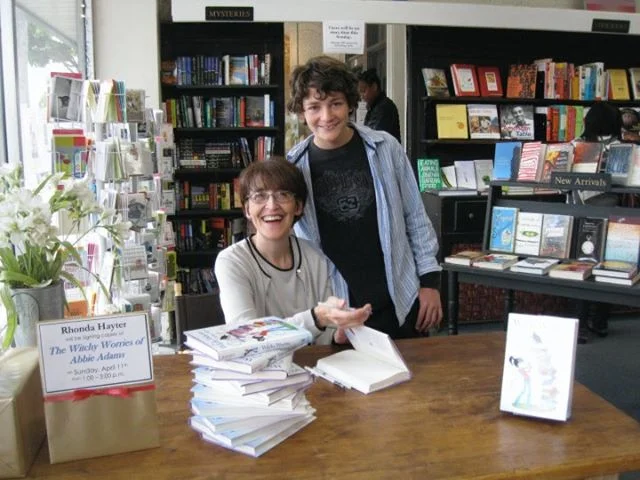Interview with the FriesenPress editor / author Rhonda Hayter
/1) Rhonda Hayter, the author, editor and the story analyst from Hollywood. It seems like you have been enjoying a long and adventurous career. Please tell us a little bit about yourself and how you got into the world of story telling.
I always talk about this in my school visits just to horrify the children but where I grew up there was no TV. It was way up north in Labrador and at that time, it was too remote to get a TV signal up there. It was also thirty degrees below zero a lot of the time, so reading was the only game in town. Much of my growing up was spent huddled on a heating grate, buried in books. Then when I grew up I moved to New York to be an actress and I was just around writers and writing all the time. From there, the transition to film development and my own writing and editing just happened organically.
2) You were working with the Hollywood producer Lawrence Gordon for years, what was it like to go through all those classic hit movie screenplays and work on them from the inception?
There is NOTHING, and I mean NOTHING as magical as seeing those black and white words you’ve read, ten thousand times at various stages of development, turn into a movie up on the big screen. Well, nothing…except maybe having the first copies of your own book show up on your doorstep. That’s pretty darn good too.
“when a writer is face down in a manuscript, pulling an entire world out of thin air, it is absolutely impossible to stay objective about the material; to judge whether intentions are coming across.”
The Witchy Worries Of Abbie Adams by Rhonda Hayter
3) “The Witchy Worries Of Abbie Adams” is your debut novel. Please tell our readers a little bit about this story.
Why I thought you’d never ask. So, Abbie Adams is a regular eleven-year old girl with normal problems, like a really strict fifth-grade teacher. (Meet Miss Linegar. Rhymes with vinegar.) She’s chronically behind in homework, struggling to remember all her lines in the drama club play, and tormented by having to keep a big secret from her very best friend. And on top of all these problems, she’s also a witch and has to deal with outsized crises, like her little brother morphing into a werewolf and trying to eat his first-grade teacher. Not to mention helping a young genius, magically transported to the 21st Century, find a way to return to his own time. It’s a middle-grade novel for 8-12 year olds.
4) What inspired you to write a story like “The Witchy Worries Of Abbie Adams”?
Well, my younger son, who was an adorable, sweet, lovely boy…most of the time…had a little problem with managing really big feelings when he was little. And he would have these terrible, ranting tantrums that went on and on, and in the middle of one of them one day, I turned to my husband and rather sweatily observed, “It’s like he turns into a werewolf or something.” And that’s what gave me the idea for a little boy who really did turn into a werewolf when he got upset, and the whole magical family, including Abbie Adams herself, grew out of that.
“as I mentioned, unless you’re already a big success, traditional publishers are not going to throw the weight of their mighty publicity machine behind you. Traditional, or self, you gotta get out there and market it.”
5) So, you are a traditionally published author, but as far as we know it wasn't offered to you on a silver platter. Tell us a little bit about that journey that led to your success.
Yikes. It was long and torturous, I’m sorry to say. I finished the book when my own kids were the right age to read it. Then it took ages to get an agent, but luckily it didn’t take too long to sell it when I did. Naturally, I thought my literary career was launched and it might have been too, but the publishing company that bought the book went out of business, just as the book was headed for copy edits. My intrepid agent didn’t give up though and she sold it again to Harcourt…which soon after started going through upheaval related to the economy and caused a lot of upheaval in my heart. My editor, Kathy Dawson left Harcourt for Penguin, but took me with her, bless her little heart. Then, all I had to endure was the glacial pace of the publishing process itself.
Rhonda Hayter at a book signing
6) Irrespective of being published traditionally or not, finding readers for a new book is always tough. How involved were you with the marketing activities for “The Witchy Worries Of Abbie Adams”?
Enormously. It’s another full time job…even with a traditional publisher, who really doesn’t do much to publicize a debut author aside from getting national reviews, selling the books to the brick and mortar stores, and working on selling the subsidiary rights (in my case to Scholastic, for the book fairs and book clubs.) The rest was me, me, me.
7) With all that experience in mind, how would you analyze the process of Traditional Publishing vs. Self-Publishing. Specially considering the modern age where, people are empowered with access to information, technology and media than how it was few years back.
I would say, there’s very little difference nowadays. We all know what has to be done in terms of platform and so on, and as I mentioned, unless you’re already a big success, traditional publishers are not going to throw the weight of their mighty publicity machine behind you. Traditional, or self, you gotta get out there and market it. And if you’re self-publishing, you have to take advantage of the resources available to make sure it’s professionally presented and edited, otherwise, it won’t get taken seriously.
8) Would you consider Self-publishing your books in the future?
It’s absolutely on my radar as a possibility for a series I have in mind.
“I think that one of the reasons that self-publishing is finally earning respect, is because people have come to understand that while writing may be a solitary pursuit, publishing a book is not. It’s very much a collaborative effort…and it should be.”
Rhonda Hayter at a book signing
9) Currently you are working for FriesenPress as an editor, helping hundreds of our authors who are self-publishing their books. Tell us a little bit about the experience of working on these new manuscripts.
What’s absolutely thrilling for me, is seeing into people’s lives and into their creativity. I know from being a writer myself that every single manuscript that gets put in front of me, has someone’s heart and fervent effort in it…and I love and respect that, always.
10) Editing a manuscript is a very responsible task and sometimes it can be very tedious too. What kind of an approach do you take when editing a manuscript?
I’ve made my living working with writers and writing for…ahem…a lot of years, and I think the reason that I’ve been successful at it, is that I still have a sense of wonder and curiosity when I pick up a new manuscript or screenplay. I’ve never gotten jaded because I’ve been astounded and impressed so often. As I tell the school kids I visit with The Witchy Worries, I grew up loving nothing more than lying around with my face in a book, and I’m very, very lucky that I still get to do that every single day.
11) Why is it so important for an author to get their manuscript edited by a professional, irrespective of the author being experienced or not?
Because when a writer is face down in a manuscript, pulling an entire world out of thin air, it is absolutely impossible to stay objective about the material; to judge whether intentions are coming across. We tend to see what we meant to say…not what’s actually on the page. That’s when that objective eye is an absolute necessity…whether you’re Saul Bellow, or um…well…me.
Rhonda Hayter with her son Ethan
12) At FriesenPress, we get all our manuscripts evaluated by professional editors like yourself and then direct our authors for copy edits and content edits if necessary. Do you think that this process helps us to make a better book?
I think that one of the reasons that self-publishing is finally earning respect, is because people have come to understand that while writing may be a solitary pursuit, publishing a book is not. It’s very much a collaborative effort…and it should be. When I was at Lawrence Gordon and self-publishing first started catching on, it was a number of years before I read a single self-published book that was worth the paper it was written on. That is absolutely not the case now…and it’s unquestionably because writers are working with editors before they publish.
13) Thank you so much for your time Rhonda, it was very insightful. I'm sure our readers would also love to read your book. Please let them know how they can get a copy of “The Witchy Worries Of Abbie Adams”.
Well how charming of you to ask. You can always find it on Amazon and you can read more about it at www.rhondahayter.com
Interviewed by Rasanga Weerasinghe


